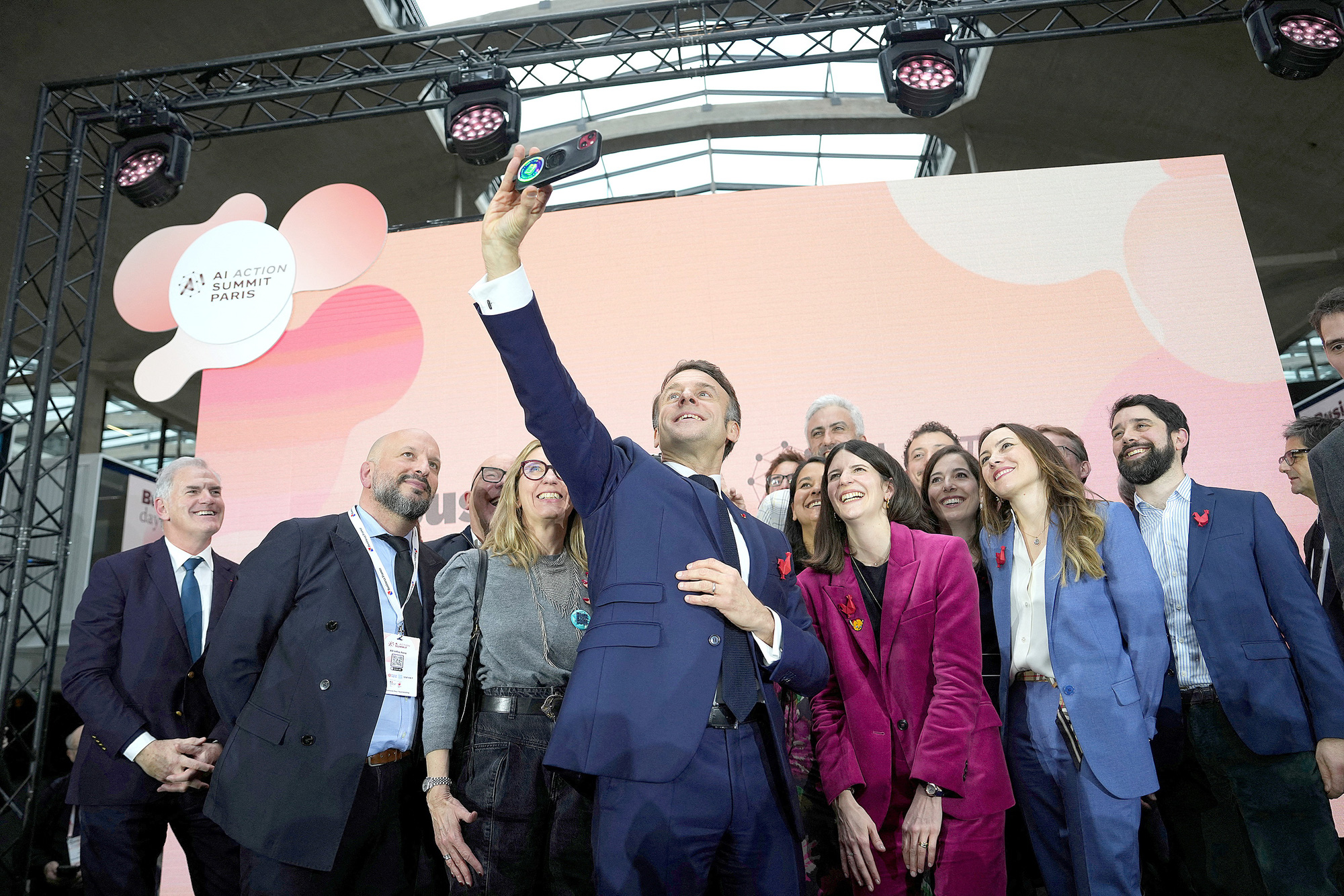The summit on the safe use of artificial intelligence (AI) in Paris attracted 61 participating countries, including China, France, and India.

French President Emmanuel Macron takes a selfie with his smartphone at an event on the sidelines of the AI Summit in Paris, France, on February 11. - Photo: Reuters
Countries have signed a declaration on "Open AI" to promote ethical and inclusive AI development, while supporting global dialogue on artificial intelligence governance and opposing "market concentration".
Notably, the US and the UK refused to sign the document. US Vice President JD Vance argued that AI regulations should promote development rather than stifle the industry, while also expressing concern about cooperating with an "authoritarian regime" (referring to China).
He also criticized Europe's overly strict data protection regulations. The UK stated that it would only participate in initiatives that align with national interests.
Roman Dushkin, CEO of A-Ya Expert and senior lecturer in cybernetics at NRNU MEPhI, explains that the US and UK's refusal is understandable: "Why should they sign when they are among the leading developers? The UK's position is simple: they want to create the best AI models in Europe and sell them to all Europeans. They wrote about that without hesitation or beating around the bush."
There are currently three main viewpoints on AI governance: the US favors placing AI in the hands of large corporations, with a trend towards loosening restrictions under Trump; China wants state control; and Europe emphasizes ethical aspects and social oversight. Clearly, modern AI is truly a weapon, and no country capable of developing this technology would refuse it.
European law in the field of AI is considered quite comprehensive and strict. The EU prohibits the collection of facial recognition information from the internet and requires transparency with "high-risk" AI systems. For example, Apple had to add the ability to download third-party applications to its devices to comply with EU regulations. It's also worth remembering that the head of Telegram, Pavel Durov, was once arrested in Paris.
However, France's efforts in the field of AI are still limited. According to a Le Point survey, 67% of French people do not believe in the country's leadership in AI. Despite its research in AI, France has yet to create internet solutions with global impact like China.
Regarding Russia and India, although considered potential rivals in the field of AI, their positions and actions remain unclear. This suggests that the global race to develop and manage AI will continue to be complex in the future, especially as technological powers have different approaches and goals.
Source: https://tuoitre.vn/thay-gi-tu-thuong-dinh-tri-tue-nhan-tao-mo-o-paris-20250214101426631.htm











































































































Comment (0)